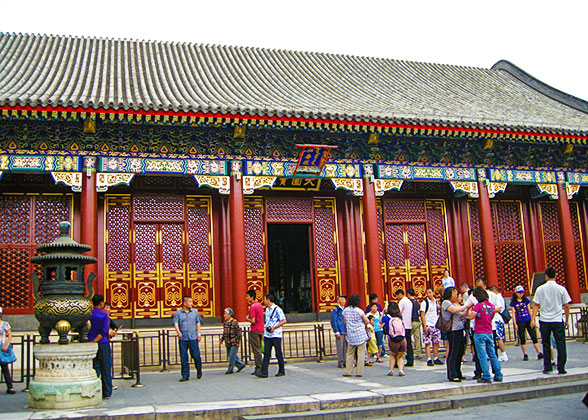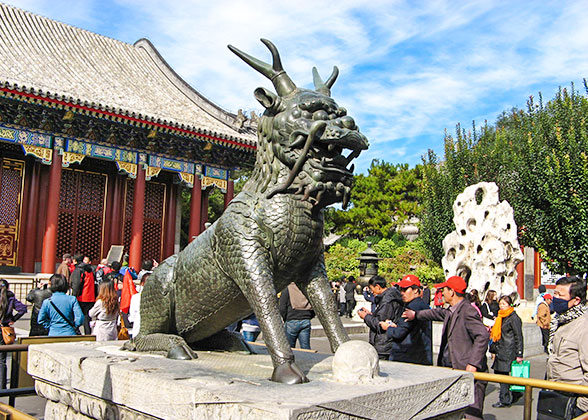Hall of Benevolence and Longevity (Renshoudian)
Actually, the Emperors' administrative hall was originally called "Qinzheng Hall" to inspire rulers to manage state affairs diligently. However, during Emperor Guangxu's time (1875 - 1908), the hall's name was changed to "Renshoudian" (Hall of Benevolence and Longevity), from the famous Confucian saying -"the ruler who reigns benevolently will have a long life".
 |
| Hall of Benevolence and Longevity |
Today, the furnishings in the hall remain as they were in the past. In the midst of the hall is a platform with a throne furnished with nine dragons, along with delicate peacock-feather fans, a monster-shaped censer, and a red sandalwood screen. The screen is more elaborate than other screens. Framed with sandalwood carved with nine dragons on the top, the middle part is a glass mirror engraved with 226 characters of "shou" symbolizing longevity in different ways. The Empress Dowager Cixi managed the affairs of court unseen, from behind the screen. Two side chambers of the hall served as the resting place of Emperor Guangxu , Empress Dowager Cixi, and other officials. Among the fine exhibits inside is a silk craftwork of one hundred bats with the Empress Dowager Cixi's calligraph "shou (longevity)". In Chinese speech, the words "happiness" and "bat" have similar tones. Therefore this craftwork was also named "one hundred bats holding longevity".
 |
![]() Next: Garden of Virtue and Harmony
Next: Garden of Virtue and Harmony
![]() Related Link: Summer Palace Travel Tips
Related Link: Summer Palace Travel Tips